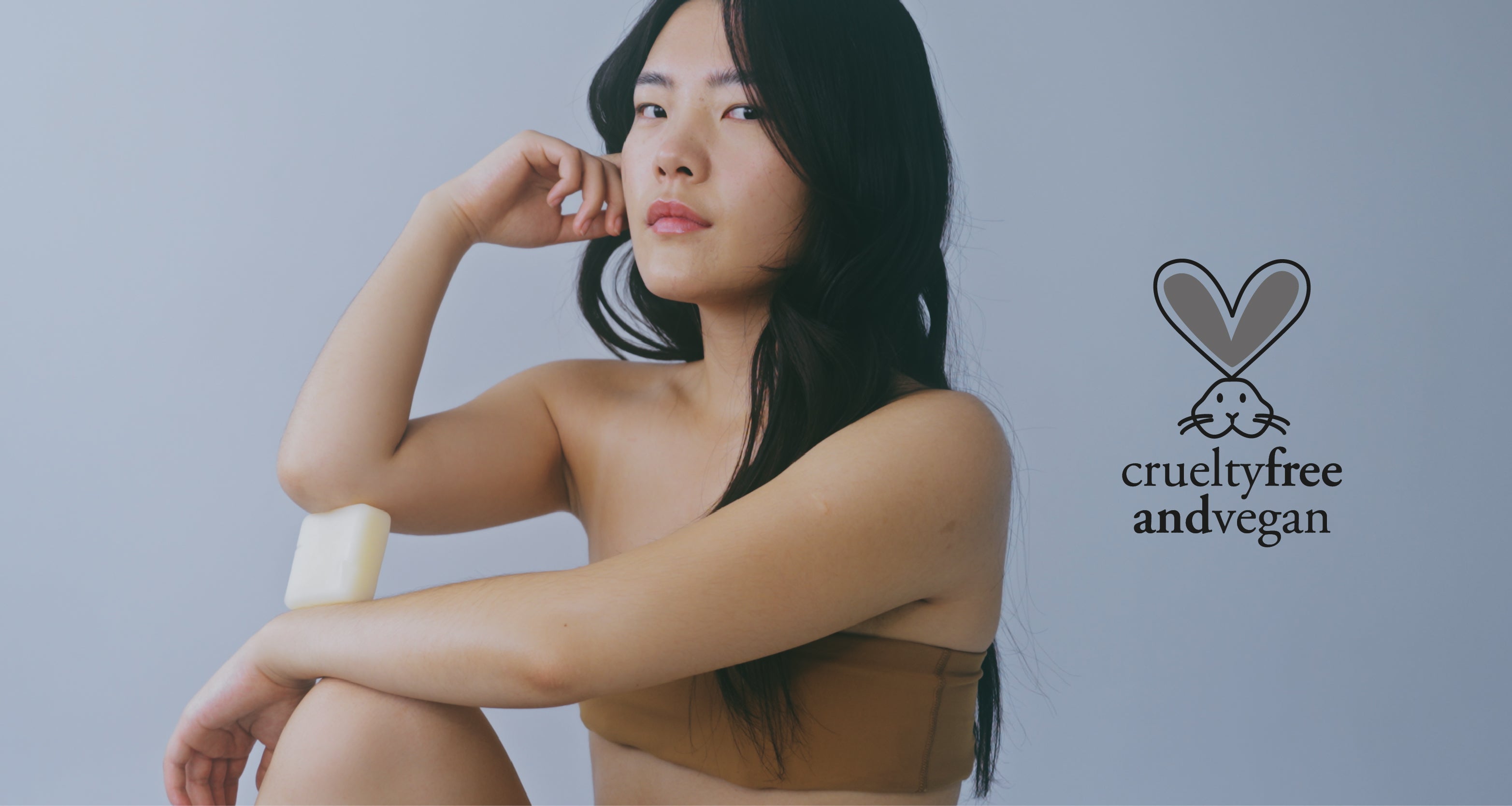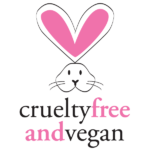01d
01
d:
15h
15
h:
10m
10
m:
37s
37
s
Many consumers are concerned about whether their everyday skin and beauty care brands contain animal products, and most of us are aware that many such off-the-shelf products have also been tested on animals.
You may be surprised: If the label on your soap or other body care product doesn’t say vegan or vegetarian, chances are it contains animal ingredients.
And how do you find out about cruelty-free & vegan beauty products? What information sources can you trust? As a consumer, how do you make a decision when it comes to the health and beauty products you use every day?
We’re here to make it easier for you, by telling you which vegan and cruelty-free seals you can rely on, and why.
Where the well-being of animals is concerned, there are two key criteria to consider when you shop for body care products:

A vegan product contains no animal ingredients. This means it’s free from ingredients made from animal fur, skin, bones or meat, and contains no egg or milk products. For example, many skin cleansers contain stearic acid, which can be made from animal fatty acids.
And many beauty products contain beeswax, an ingredient made by our friends, the bees.
A cruelty-free product has never been tested on animals. In other words, it has never been fed to, applied on or inhaled by an animal to test its safety for humans.
Cruelty‑free products rely on alternative methods to figure out if a product is safe. They may be tested on dissected human tissue, or better yet, made with ingredients that are known to be safe for humans.
It’s a popular misconception that a product is not safe for humans unless it’s been tested on animals. We’d like to suggest that it’s never necessary to test on animals. Companies can always rely on alternatives to animal testing, such as theoretical models or plant-based cellular technology.
Regardless, manufacturers around the world continue to test their products (and the ingredients in their products) on mice, rabbits, rats, dogs and cats.
Sometimes the product is applied directly on an animal’s skin for many days in a row. Then the animal is euthanized and dissected to determine if its organs were damaged. Labs also feed chemical ingredients to animals, and spray ingredients in animals’ eyes and respiratory tracts.
It is not. The U.S. Food and Drug Administration (FDA) does not require cosmetic manufacturers to test their ingredients or products on animals to prove that they are safe.
Similarly, Canada’s Food and Drug Act states that cosmetic animal testing is not necessary. Currently, only China requires that all cosmetics sold in retail stores in that country be tested on animals.
However, products sold through online platforms and e‑commerce websites are not subjected to this law in China. This is how ATTITUDE body care products are made available on the Chinese market, while guaranteeing our consumers that no animal testing is done. Testing cosmetics on animals is now illegal in the European Union, India, Israel, New Zealand, Turkey and the U.K.
But it’s still legal to test beauty and body care products on animals in Canada and the U.S. While both countries have regulations in place to protect the welfare of testing animals, cosmetic testing in Canada and the U.S. continues.
You’ve probably noticed a dozen different eco- and socially responsible logos and seals on your body care products. It’s difficult to know at a glance what they all mean.
Are there some seals that are more important than others? Which ones should you look out for?

PETA is an animal rights organization dedicated to protecting animals from cruelty, consumption and exploitation. The organization has created its own cruelty-free seal for cosmetics, called the Beauty without Bunnies program.
There are two versions of this seal: One indicates that products are not tested on animals, and the other identifies vegan products that are not tested on animals.

Cruelty Free International is a global organization that works to end animal testing and experiments.
Their Leaping Bunny program certifies cosmetics, personal care and cleaning products that meet their rigorous criteria for being cruelty-free.

The ECAEA is a group of 20 European animal protection organizations that work together to end animal experiments.
In collaboration with Cruelty Free International and other organizations, they use the Leaping Bunny seal to help consumers identify personal care products that are manufactured without animal testing.

Choose Cruelty Free is an Australian non-profit dedicated to helping consumers make informed, cruelty-free decisions.
They use the Not Tested on Animals rabbit logo to certify cosmetics, body care products and cleaning products whose ingredients are not tested on animals.

One Voice is an independent animal rights organization based in France.
It issues the One Voice label, which has two versions: The orange label identifies products that are cruelty-free, vegan and organic, and the blue label identifies products that are cruelty‑free and vegan, but not organic.

The Vegan Society is a U.K.-based organization working for the widespread adoption and recognition of veganism.
They created the Vegan Trademark to identify food, drink, health and beauty products, cleaning products and services that are free from animal products.
Pay close attention to your labels. The words “cruelty-free” or “not tested on animals,” or even a bunny on the label may refer to only the final product, not its ingredients.
Most animal testing occurs at the ingredient level. While a company may claim, "We do not test on animals," it could still hire other companies to test its ingredients.
The only way to be sure a product is cruelty-free is to:
ATTITUDE products are always cruelty-free, and all our cleaning and body care products are vegan.

We chose to use the PETA Beauty without Bunnies logo because PETA is the only organization that certifies:
As a manufacturer of natural body care and cleaning products, ATTITUDE stands behind these rigorous standards.
We’re as ethical as we are good; it’s central to who we are.